Family Rituals Funeral Rituals |
||||
 |
A
Humanist Funeral Service |
An
excellent site to research Modern & Ancient Funeral Rites on
the Internet is found at:
INTRODUCTORY MUSIC It is usually desirable to
have fifteen or twenty minutes of introductory music while people
are gathering for the funeral service at the house, apartment, hall,
church or funeral home. For the music, an organ, piano, or recorded
music can be used. It can
be any contemporary or classic music which was meaningful to the
deceased or to the family of the deceased.
The following selections are but a few suggestions:
1. Handel's ALargo@ from Xerxes 2. Gluck's ADance of the Spirits@ from Orpheus 3. Rubinstein's Kamennoi Ostrov 4. Bach's Come Sweet Death 5. Massenet's Meditation and Elegie 6. Aaron Copland's Shaker Tune from Appalachian
Spring |
THE SERVICE (There is to be a short pause
between the introductory music and the service proper. The beginning of the service can be indicated
by the person in charge taking his place.)
MUSIC.
Any appropriate solo or music.
1. Beethoven's Seventh Symphony, Second
Movement, first third.
2.
INTRODUCTION:
WE are gathered here today
to honor the life and memory of __________________________________________. Death has come to our friend, as it comes eventually
to all of us human beings and creatures of the planet earth.
READINGS:
Whatever appropriate readings
are decided upon by the family and friends of the deceased are used
here.
1. Philippians 4:8 AWhatever things are true, whatever things are honorable,
whatever things are unblemished, whatever things are lovely, whatever
things are of good report; if there is any goodness, and if there
is any praise, meditate upon these things.@
|
MEDITATION:
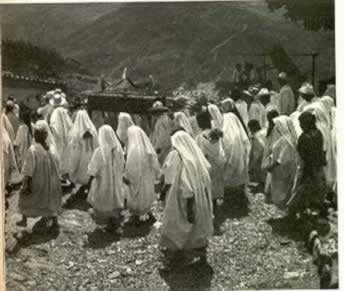 The
occurrence of death forces upon each one of us the common concerns, the
common crises and the common destiny of all creatures living on this earth.
Death draws us together in the deep-felt emotions of the heart; it
dramatically accents the ultimate equality involved in our ultimate fate;
it reminds us of the essential brotherhood of humanity that lies beneath
all the bitter dissensions and divisions registered in history and contemporary
affairs. The human race, with its
infinite roots reaching back over the boundless past and its infinite consequences
extending throughout the present world and ever pushing forward into the
future, is one great family. The
living and the dead and the generations yet unborn make up that enduring
communion of humanity which shares the adventure of life upon this challenging
and stimulating earth.
The
occurrence of death forces upon each one of us the common concerns, the
common crises and the common destiny of all creatures living on this earth.
Death draws us together in the deep-felt emotions of the heart; it
dramatically accents the ultimate equality involved in our ultimate fate;
it reminds us of the essential brotherhood of humanity that lies beneath
all the bitter dissensions and divisions registered in history and contemporary
affairs. The human race, with its
infinite roots reaching back over the boundless past and its infinite consequences
extending throughout the present world and ever pushing forward into the
future, is one great family. The
living and the dead and the generations yet unborn make up that enduring
communion of humanity which shares the adventure of life upon this challenging
and stimulating earth.
Here on our planet there
have evolved, over millions of years, human beings possessed of the power
of mind, the beauty of love, the splendor of heroism.
Men and women, with all their diverse gifts, are fully part and product
of the Natural world that is our home.
We are cousins to all other living forms; and in our very flesh and
blood one with that same marvelous and multi-structured matter that underlies
the whole vast universe, the shining array of stars, the gracious sun, our
own world and everything within it.
The great and eternal natural
world composed of atoms and brains, electricity and feelings, quasars and
consciousness was the blessed possession of our friend _______________________.
We share with him/her the kinship with humanity.
We walk with him/her through the valley of the shadow of death. We feel sorrow, pity, forsakenesss, loneliness,
joyCall of those perceptions
which stem from consciousness unique in this world of electrons and impersonal
forces. We share a kinship with
our deceased brother/sister in this natural world.
None of us lives to himself/herself and none of us dies to himself/herself.
We bear the stamp of the physical pattern which enables our spirits
to exist and soar. We share the transformation, beginnings, endings;
birth, growth, death. Unlike the
rocks, trees, and roses, we are conscious of our birth and death. We dread or embrace them. We live on in the consciousness which we shared
with ____________________________. So
it is that the freshness and delight of each new day, the continual zest
of living are tempered by the sting of brevity and loss.
As painful as it is to each
one of us, death and brevity are woven into the natural universe. Life and death are different and essential
aspects of the same creative process.
It is Nature's law that living organisms should eventually retire
from the scene and so make way for newborn generations. In this sense, life affirms itself through death. Each one of us Amust die for the sake of life, for the flow of the stream
too great to be dammed in any pool, for the growth of the seed too strong
to stay in one shape. Because these
bodies must perish we are greater than we know.@
In the greater perspective, then, in the total picture, death is
inevitable, but it is also tragic to each one of us.
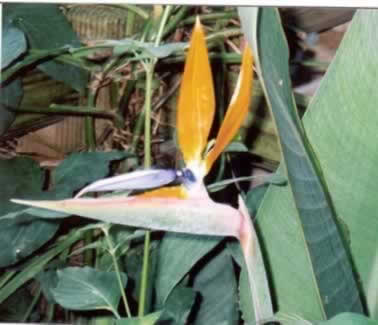 We
must reconcile ourselves with death, with loss, with loneliness, with fear.
We must accept as inevitable the eventual extinction of human individuals
and the return of our bodies to the ultimate elements of the natural world.
In death as in life, we belong to our mother earth and to one another.
We
must reconcile ourselves with death, with loss, with loneliness, with fear.
We must accept as inevitable the eventual extinction of human individuals
and the return of our bodies to the ultimate elements of the natural world.
In death as in life, we belong to our mother earth and to one another.
MUSIC. Grieg's
AMorning@ from The Peer Gynt Suite. Other appropriate music.
CONTINUED MEDITATION
Although it is premature
death that is most tragic to our human emotions and awareness, the final
parting brought upon us by death, shocks us and causes the tears to flow
whenever the ties of love and friendship are involved.
Those who feel deeply will grieve deeply.
No philosophy or religion ever taught can prevent this wholly natural
reaction of the human spirit.
Whatever relationships and
enterprises death breaks in upon, we can be sure that those whom we have
lost are finally and eternally at peace.
And whatever time we have had a friend, we always remain grateful
for his/her having lived and for having known him/her and sharing in the
amazing and contradictory richness of his/her personality.
Nothing can detract from
the joy, beauty, tragedy and ugliness which we shared with _____________;
nothing can possibly affect the happiness and sorrow and depth of experience
that __________________________ knew in his/her experience of life and awareness.
The past, with all its meaning, is sacred and precious.
Our love for him/her and his love for us, his family and friends,
are part of us in our conscious and unconscious mind.
We rejoice that __________________________
was and is a part of our lives. [We rejoice that he/she lives on in his beloved
children and grandchildren.] His/her
influence endures in the glowing consequences of his/her character and deeds;
it endures in our own actions and thoughts. We shall remember him as a living, vital presence.
That memory will bring refreshment to our hearts and strengthen us
in times of trouble. These are reflections that we treasureCeach in his/her own way; for there can never be too much
friendship in our world, too much human warmth, too much love.
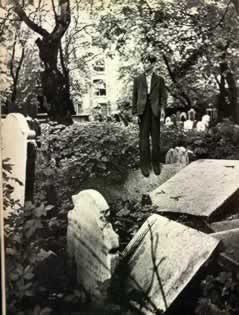 |
READINGS: (may
be read in unison by all present).
1. Psalm 23
2. I Corinthians 13:1-8, 13
|
3. Gone Too Soon Music by Larry Grossman;
Lyrics by Buz KohanCfrom album Dangerous
by Michael Jackson. (Fiddleback Music Pub. Co., Inc.-1991)
Like a Comet Blazing 'cross the evening
sky Gone too soon
Like a rainbow, Fading in the twinkling of
an eye Gone too soon
Shiny and sparkly and splendidly bright Here one day Gone one night
Like the loss of sunlight on a cloudy afternoon Gone too soon
Like a Castle built upon a sandy beach Gone too soon
Like a perfect flower that is just beyond your
reach Gone too soon
Born to amuse, to inspire,
to delight Here one day Gone one night
Like a Sunset Dying with the rising of
the moon Gone too soon Gone too soon! |
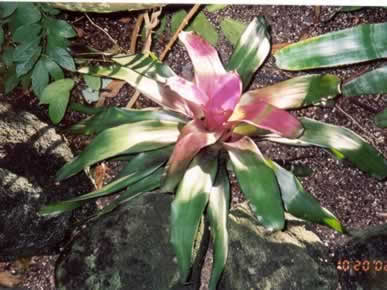 |
Words and Music by Michael
Jackson, 1991. Planet
Earth, My Home, my place
In
my veins I've felt the mystery Were
turbulent tempests in my own form. Planet
earth are you just Cold
as a rock without a hue |
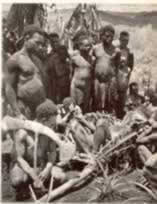 |
BRIEF PERSONAL REMARKS or
TRIBUTES. (By family or
friends.)
MEDITATION;
On
this occasion, as we reflect upon human existence and its meaning,
it is for us, the living, to dedicate ourselves anew to those
great ethical aims and ideals which have evolved through the ages:
to reaffirm that friendliness and sympathy toward one another
which are the foundation of the healthy society; to resolve anew
to bend our minds and energies in the vigorous pursuit of the
truth (no matter where it be found); to create beauty; to advance
freedom and brotherhood/sisterhood; to touch one another with
kindness and understanding. Beyond the welfare of our native land, we look to the world at large
and seek the happiness and progress of all humanity upon this
fragile and fruitful earthCto the end that everywhere
men and women may have live and have it more abundantly.
May
the human race continue to flourish, growing in grace, wisdom
and generosity. May we preserve the fragile and precious forms
of life on our planet earth.
For
the best of all answers to death is a wholehearted and continuing
affirmation of life.
READING. From The Passing Strange by John Masefield:
For
all things change, the darkness changes, The
wandering spirits change their ranges, The
corn is gathered to the granges.
The
corn is sown again, it grows; The
stars burn out, the darkness goes; The
rhythms change, they do not close.
They
change, and we, who pass like foam, Like
dust blown through the streets of Rome, Change
ever, too; we have no home,
Only
a beauty, only a power, Sad
in the fruit, bright in the flower, Endlessly
erring for its hour, But
gathering, as we stray, a sense Of
life, so lovely so intense, It
lingers when we wander hence,
That
those who follow feel behind Their
backs, when all before is blind, Our
joy, a rampart to the mind.
MUSIC. Brahm's First Symphony, Fourth Movement, first third. ANNOUNCEMENT: Concerning the committal/burial service. MUSIC. |
 |
BURIAL
SERVICE |
(This
service is designed to take place at the grave.
Two forms of service are here suggested, the second being for a personal
comparatively young at the time of his/her death.)
I
In
committing the body of ____________________ to this hallowed ground, we
do so with deep reverence for that body as the temple, during life, of a
unique and beloved personality. And we think of the words of Socrates, Athat no evil can befall a good person either in life
or after death.@
Here
under the wide and open sky our friend will rest in peace. We dedicate this simple plot, amid these natural surroundings, to
every beautiful and precious memory associated with her/him.
We
lay her/his body in that gentle earth which has been the chief support of
humanity since we first walked in awareness beneath the sun.
To all human beings, to all living forms, the soil has provided the
sustenance that is the staff of life. To
that good earth we now give back the body of our friend and say with the
poet Shelley:
He/she
is made one with Nature: there is heard
His/her
voice in all her music, from the moan
Of
thunder, to the song of night's sweet bird;
He/she
is a presence to be felt and known
In
darkness and in light, from herb and stone.
He/she
is a portion of the loveliness
Which
once he/she made more lovely.
II
In
saying our last farewell to ________________________, we shall read a sonnet
by George Santayana, who once wrote: AThe length of things is vanity; only their height is
joy.@
READING. From Santayana's To W.P.:
With
you a part of me has passed away;
For
in the peopled forest of my mind
A
tree made leafless by this wintry wind
Shall
never don again its green array.
Chapel
and fireside, country road and bay,
Have
something of their friendliness resigned;
Another,
if I would, i could not find,
And
I am grown much older in a day.
But
Yet I treasure in my memory
Your
gift of charity, and young heart's ease,
and
the dear honor of your amity;
For
these once mine, my life is rich with these.
I
scarce know which part may greater be,C
What
I keep of you, or you rob from me.
 |
READING. From A Pindaric Ode by Ben Jonson: It
is not growing like a tree In
bulk, doth make men better be; Or
standing long an oak, three hundred year, To
fall a log at last, dry, bald, and sear: A
lily of a day Is
fairer far in May, Although
it fall and die that night; it
was the plant and flower of light. In
small proportions we just beauties see; And
in short measures, life may perfect be. |
We
lay her/his body in that gentle earth which has been the chief support
of humanity since we first walked in awareness before the sun.
To all human beings, to all living forms, the soil has ever
provided our sustenance as the staff of life.
To the good earth and to the mysterious natural world which
are the source of our existence, we now give back the body of our
friend, with the full and certain knowledge that, in the words of
Socrates, Ano evil can befall a good
person either in life or after death.@ |
 |
CREMATION
SERVICE (This
service is designed to take place in the anteroom or the chapel
of the crematorium, just before the cremation itself.
Two forms of service are here suggested, the second being
for a person comparatively young at the time of death.) In
committing the body of _________________ to the flames, we do
so with deep reverence for that body as the temple, during life,
of a unique and beloved personality. Through the purifying process of fire this
body now becomes transformed into the more simple and ultimate
elements of our universe. Fire
is itself one of the great forces of Nature. |
READING. From Fruit-Gathering by Sir Rabindranath Tagore: O Fire, my brother, I sing
victory to you. You are the bright red image
of fearful freedom. You swing your arms in the
sky, you sweep your impetuous
fingers across the harp-string, your dance music is beautiful.
My body will be one with
you, my heart will be caught in
the whirls of your frenzy, and the burning heat that
was my life will flash up and mingle
itself in your flame.
To this same flame, then, we give finally the body
of our friend, ______________, with the full and certain
knowledge that, in the words of Socrates, Ano evil can befall a good man either in live or after death.@ II
In
saying our last farewell to _______________________, we shall
read a sonnet by George Santayana, who once wrote:
AThe length of things is vanity, only their height is
joy.@
READING. From Santayana's To W.P.:
With
you a part of me has passed away; For
in the peopled forest of my mind A
tree made leafless by this wintry wind Shall
never don again its green array. Chapel
and fireside, country road and bay, Have
something of their friendliness resigned; Another,
if I would, i could not find, And
I am grown much older in a day. But
Yet I treasure in my memory Your
gift of charity, and young heart's ease, and
the dear honor of your amity; For
these once mine, my life is rich with these. I
scarce know which part may greater be,C What
I keep of you, or you rob from me. |
 |
READING. From A Pindaric Ode by Ben Jonson: It
is not growing like a tree In
bulk, doth make men better be; Or
standing long an oak, three hundred year, To
fall a log at last, dry, bald, and sear: A
lily of a day Is
fairer far in May, Although
it fall and die that night; it
was the plant and flower of light. In
small proportions we just beauties see; And in short measures, life may perfect be. |
In
committing the body of _________________ to the flames, we do so with deep
reverence for that body as the temple, during life, of a unique and beloved
personality. Through the purifying process of fire this
body now becomes transformed into the more simple and ultimate elements
of our universe. Fire is itself
one of the great forces of Nature. In
the heavens above it shines out with majestic splendor in the warming and
life-giving sun and in all the infinite host of stars; upon our earth it
is the versatile servant of mankind and one of the bases of civilization.
To
this same fire, then we give finally the body of our friend, ___________________________________,
with the full and certain knowledge that, in the words of Socrates, ANo evil can befall a good
man either in life or after death.@
 |
SERVICE FOR INTERMENT OF ASHES
(If
the ashes are interred in a burial plot, the family may wish to have a further
brief ceremony such as the following.)
In
placing the ashes of _______________________ in this hallowed ground, we
think again of all that our dear companion meant and means to us.
And we dedicate this simple plot, amid these natural surroundings,
to every beautiful and precious memory associated with her/him.
We
lay these ashes in that gentle earth which has been the chief support of
humanity since he/she first walked awareness beneath the sun.
To all human beings, to all living forms, the soil has provided our
sustenance that is the staff of life. To
that good earth we now commit the ashes of our friend and say with the poet
Shelly:
He/she
is made one with Nature: there is heard
His/her
voice in all her music, from the moan
Of
thunder, to the song of night's sweet bird;
He/she
is a presence to be felt and known
In
darkness and in light, from herb and stone.
He/she
is a portion of the loveliness
Which
once he/she made more lovely.
 |
ADDITIONAL SUGGESTIONS FOR MUSIC
Most
of the pieces of music mentioned are available in scores for both
piano, organ and other instruments.
It is comparatively easy for a trained musician to transcribe
piano into organ music where that may be necessary.
Many of them are also available on Compact Discs or Cassette
Tapes.
Londonderry
Air
C Anonymous (Old Irish)
ASonatina@ from Cantata 106 by Johann Sebastian Bach (1685-1750)
Third
Symphony (Eroica),
Second Movement by Ludwig van Beethoven (1770-1827)
A
German Requiem,
first fourth by Johannes Brahms (1833-1897)
Marche
Funebre
by Frédéric Chopin (1810-1849)
Clair
de Lune by Claude Debussy (1862-1918)
Delius
Over the Hills and Far Away,
opening part
Fifth
Symphony (New World),
Second Movement, first third by Antonin Dvorak (1841-1904)
Ave
Maria by Charles Gounod (1818-1893)
The
Last Spring
by Edvard Grieg (1843-1907)
ADead March@ from Saul by George Friedric Handel (1658-1759)
AWandering Westward@ from Mark Twain by Jerome Kern (1885-1945)
AOld Man River@ from Show Boat by Jerome Kern (1885-1945)
Liebesleid by Fritz Kreisler ( )
ATo a Wild Rose@ from Woodland Sketches by Edward Alexander MacDowell
(1861-1908)
Eine
Kleine Nachtmusik
by Wolfgang Amadeus Mozart (1756-1791)
The
Rosary by Nevin
Pavane
for a Dead Princess
by Maurice Joseph Ravel (1875-1937)
Death
and the Maiden,
Second Movement by Franz Peter Schubert (1797-1828)
ALiebestod@ from Tristan and Isolde by Richard Wagner (1813-1883)
ADDITIONAL SUGGESTIONS FOR POETRY
Death
has always been one of the great themes for poets and song lyricists
of every age and country. And
there are a vast number of poems about death that embody a Humanist
viewpoint. For inclusion here I am amassing various outstanding poems that
give expression to some aspect of the Humanist philosophy and
that are appropriate for reading aloud at a Humanist funeral service. I will continue to search for meaningful expressions
of the human condition and the meaning of life and death.
And If He Die? Arthur Davison Ficke
And
if he die? He for an hour
has been Alive,
aware of what it is, to be. The
high majestic hills, the shining sea, He
has looked upon,; and meadows golden-green. The
stars in all their glory he has seen. Love
he has felt. This poor
dust that is he Has
stirred with pulse of inward liberty, And
touched the extremes of hope, and all between. Can
the small pain of death-beds, can the sting Of
parting from the accustomed haunts of earth, Make
him forget the bounty of his birth And
cancel out his grateful wondering That
he has known exultance and the worth Of
being himself a song the dark powers sing?
In Memoriam Joseph Auslander
They
are not dead, our sons who fell in glory, Who
gave their lives for Freedom and for Truth; We
shall grow old, but never their great story, Never
their gallant youth.
In
a perpetual springtime set apart, Their
memory forever green shall grow, In
some bright secret meadow of the heart Where
never falls the snow.
The Dead Rupert Brooke (1887-1915)
I
Blow out, you bugles, over
the rich Dead! There's
none of these so lonely and poor of old, But,
dying, has made us rarer gifts than gold. These laid the world away;
poured out the red Sweet wine of youth; gave
up the years to be Of
work and joy, and that unhoped serene, That
men call age; and those who would have been, Their sons, they gave their
immortality.
Blow, bugles, blow! They brought us, for our dearth, Holiness,
lacked so long, and Love, and Pain. Honor has come back, as a
king, to earth, And
paid his subjects with a royal wage; And Nobleness walks in our
ways again; And
we have come into our heritage.
II
These hearts were woven of
human joys and cares, Washed
marvelously with sorrow, swift to mirth. The years had given them
kindness. Dawn was theirs, And
sunset, and the colors of the earth. These had seen movement,
and heard music; known Slumber
and waking; loved; gone proudly friended; Fell the quick stir of wonder;
sat alone; Touched
flowers and furs and cheeks.
All this is ended.
There are waters blown by
changing winds to laughter And lit by rich skies, all
day. And after, Frost,
with a gesture, stays the waves that dance And wandering loveliness. He leaves a white Unbroken
glory, a gathered radiance, A width, a shining peace,
under the night. |
Requiem Robert Louis Stevenson (1850-1894) Dig the grave and let me
lie: Glad did I live and gladly
die, And I laid me down with a
will. This be the verse you grave
for me: Here he lies where he longed
to be; Home is the sailor, home
from the sea, And the hunter home from
the hill. From Thanatopsis William Cullen Bryant (1794-1878)
To him who in the love of
Nature holds Communion with her visible
forms, she speaks A various language; for his
gayer hours She has a voice of gladness,
and a smile And eloquence of beauty,
and she glides Into his darker musings,
with a mild And healing sympathy, that
steals away Their sharpness, ere he is
aware. When thoughts Of the last bitter hour comes
like a blight Over thy spirit, and sad
images Of the stern agony, and shroud,
and pall, And breathless darkness,
and the narrow house, Make thee to shudder and
grow sick at heart;C Go forth, under the open
sky, and list To Nature's teachings, while
from all aroundC Earth and her waters, and
the depths of airC Comes a still voice So
live, that when thy summons comes to join The innumerable caravan which
moves To that mysterious realm
where each shall take His chamber in the silent
halls of death, Thou go not, like the quarry-slave
at night, Scourged to his dungeon,
but, sustain'd and soothed By an unfaltering trust,
approach thy grave, Like one who wraps the drapery
of his couch About him, and lies down
to pleasant dreams.
Sonnet CVIII William Shakespeare (1564-1616)
Not mine own fears, nor the
prophetic soul Of the wide world dreaming
on things to come, Can yet the lease of my true
love control, Supposed as forfeit to a
confined doom. The mortal moon hath her
eclipse endured, And the sad augurs mock their
own presage; Incertanties now crown themselves
assured, And peace proclaims olives
of endless age. Now with the drops of this
most balmy time My love looks fresh, and
Death to me subscribes, Since, spite of him, I'll
live in this poor rhyme, While he insults o'er dull
and speechless tribes: and
thou in this shalt find thy monument, when
tyrants' crests and tombs of brass are spent.
From Adonais Percy Bysshe Shelley (1792-1822)
XL
He has outsoared the shadow
of our night; Envy and calumny and hate
and pain, And that unrest which men
miscall delight, Can touch him not and torture
not again; From the contagion of the
world's slow stain He is secure, and now can
never mourn A heart grown cold, a head
grown gray in vain; Nor, when the spirit's self
has ceased to burn, With
sparkless ashes load an unlamented urn.
XLII
He is made one with Nature:
there is heard His voice in all her music,
from the moan Of thunder, to the song of
night's sweet bird; He is a presence to be felt
and know In darkness and in light,
from herb and stone, Spreading itself where'er
that Power may move Which has withdrawn his being
to its own; Which wields the world and
never-wearied love, Sustains
it from beneath, and kindles it above.
XLIII
He is a portion of the loveliness Which once he made more lovely:
he doth bear His part, while the one Spirit's
plastic stress Sweeps through the dull dense
world, compelling there, All new successions to the
forms they wear; Torturing th' unwilling dross
that checks its flight To its own likeness, as each
mass may bear; And bursting in its beauty
and its might From
trees and beasts and men into the Heaven's light.
On His Seventy-Fifth Birthday Walter Savage Landor (1775-1864)
I strove with none, for none
was worth my strife. Nature
I loved and, next to Nature, Art: I warmed both hands before
the fire of life; It
sinks, and I am ready to depart. |
 |
From
On the Nature of Things, Book III Lucretius (98?-55 B.C.) (Translated by W. H. Mallock) No single thing abides; but
all things flow. Fragment to fragment clingsCthe things thus grow Until
we know and name them. By
degrees They melt, and are no more
the things we know. Globed from the atoms falling
slow or swift I see the suns, I see the
systems lift Their
forms; and even the systems and the suns Shall go back slowly to the
eternal drift. Though too, oh earthCthine empires, lands, and seasC Least, with thy stars, of
all the galaxies, Globed
from the drift like these, like these thou too Shalt go. Thou art going, hour by hour, like these. Nothing abides. Thy seas in delicate haze Go off; those mooned sands
forsake their place; and
where they are, shall other seas in turn Mow with their scythes of
whiteness other bays. The seeds that once were
we take flight and fly, Winnowed to earth, or whirled
along the sky, Not
lost but disunited. Life lives
on. It is the lives, the lives,
the lives, that die. They go beyond recapture
and recall, Lost in the all-indissoluble
All:C Gone
like the rainbow from the fountain's foam, Gone like the spindrift shuddering
down the squall. Flakes of the water, on the
waters cease! Soul of the body, melt and
sleep like these. Atoms
to AtomsCweariness to restC Ashes to ashesChopes and fears to peace! O Science, lift aloud thy
voice that stills The pulse of fear, and through
the conscience thrillsC Thrills
through the conscience with the news of peaceC How beautiful thy feet are
on the hills! |

 4.
4.